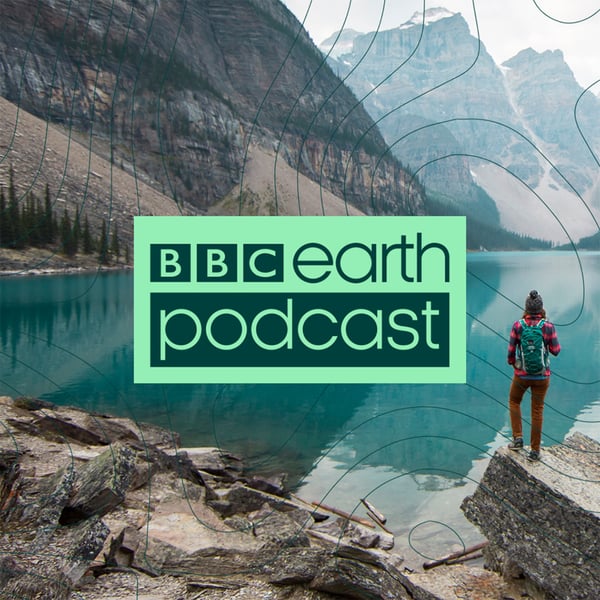Saving a species through sound
BBC Earth Podcast
Jenkins Laura
4.6 • 611 Ratings
🗓️ 26 January 2021
⏱️ 32 minutes
🧾️ Download transcript
Summary
In this week’s episode of the BBC Earth podcast we’ll be looking to solve some of the natural world’s mysteries.
Starting off in North West Honduras, we’ll hear from ethnobiologist and sound artist Ben Mirin who set out to discover the voice of a previously voiceless animal. The exquisite spike-thumb frog is a critically endangered species. Recording its voice could help save this frog. The only problem is, nobody actually knows what it sounds like.
We’ll also be taken on a personal journey of discovery with a woman who has become known on the tiny island of Guam in Micronesia as the ‘Manta Mum’. Julie Hartup is a microbiologist who has spent over a decade studying the enigmatic Manta Rays. She explains how a simple hypothesis led to a beautiful discovery.
Finally, we’ll speak to marine biologist Dr Edith Widder who has spent most of her career trying to communicate with the animals that live in our oceans.
Thank you for listening to another series of the BBC Earth podcast.
As ever, we love hearing from you on social media, so do share with us your favourite episode so far or a story that amazed, surprised or moved you…
To find out more about David Attenborough’s stunning natural world series, A Perfect Planet, visit the BBC Earth website: bbcearth.com
Website: www.bbcearth.com
Facebook: www.facebook.com/bbcearth/
Instagram: www.instagram.com/bbcearth/
Twitter: www.twitter.com/bbcearth
Hosted on Acast. See acast.com/privacy for more information.
Transcript
Click on a timestamp to play from that location
| 0:00.0 | This is a podcast from BBC Studios. |
| 0:03.9 | A commercial subsidiary of the BBC. Kusuko National Park is a hidden gem in northwest Honduras. |
| 0:26.7 | This is a cloud forest. It's at a high elevation. |
| 0:30.3 | And so the condensation on all of the plant life produces these unbelievable air-dwelling plants |
| 0:37.3 | that have roots that just go out into space |
| 0:39.5 | and all this incredible moss that adorns all the tree trunks. |
| 0:47.0 | You wake up in the morning and it's quite crisp and there are clouds touching the tops of the trees |
| 0:52.8 | and ketzels flying around the campsite and vocalizing, |
| 0:57.6 | and you just feel like you're on a different planet. |
| 1:00.0 | Welcome to the BBC Earth podcast. The podcast that's listening, really listening, to the orchestra of the natural world. |
| 1:09.0 | It's a magical place with a lot of different elements to it. |
| 1:11.7 | We also could find other frogs and other birds and even howler monkeys. |
| 1:19.4 | And so we got a really thorough documentation of the various voices of Kasuko, |
| 1:25.3 | and I feel like I've really connected with the orchestra that's playing there. |
| 1:29.8 | In this episode, we're going off the edge of the map |
| 1:32.5 | as we explore the unknown, |
| 1:35.3 | and we're hoping to solve a few of the natural world's |
| 1:37.6 | perplexing little mysteries along the way. |
| 1:41.0 | We begin the journey today with a small, unassuming-looking tree frog in the Casucco |
| 1:45.7 | cloud forest in Honduras, in Central America. |
| 1:49.2 | It goes by the rather glorious name of Plectra Heila Exquisita, or the exquisite spike-thumb frog. |
| 1:56.3 | We know where it lives, and we know what it looks like, but here's the mystery. |
... |
Please login to see the full transcript.
Disclaimer: The podcast and artwork embedded on this page are from Jenkins Laura, and are the property of its owner and not affiliated with or endorsed by Tapesearch.
Generated transcripts are the property of Jenkins Laura and are distributed freely under the Fair Use doctrine. Transcripts generated by Tapesearch are not guaranteed to be accurate.
Copyright © Tapesearch 2025.

